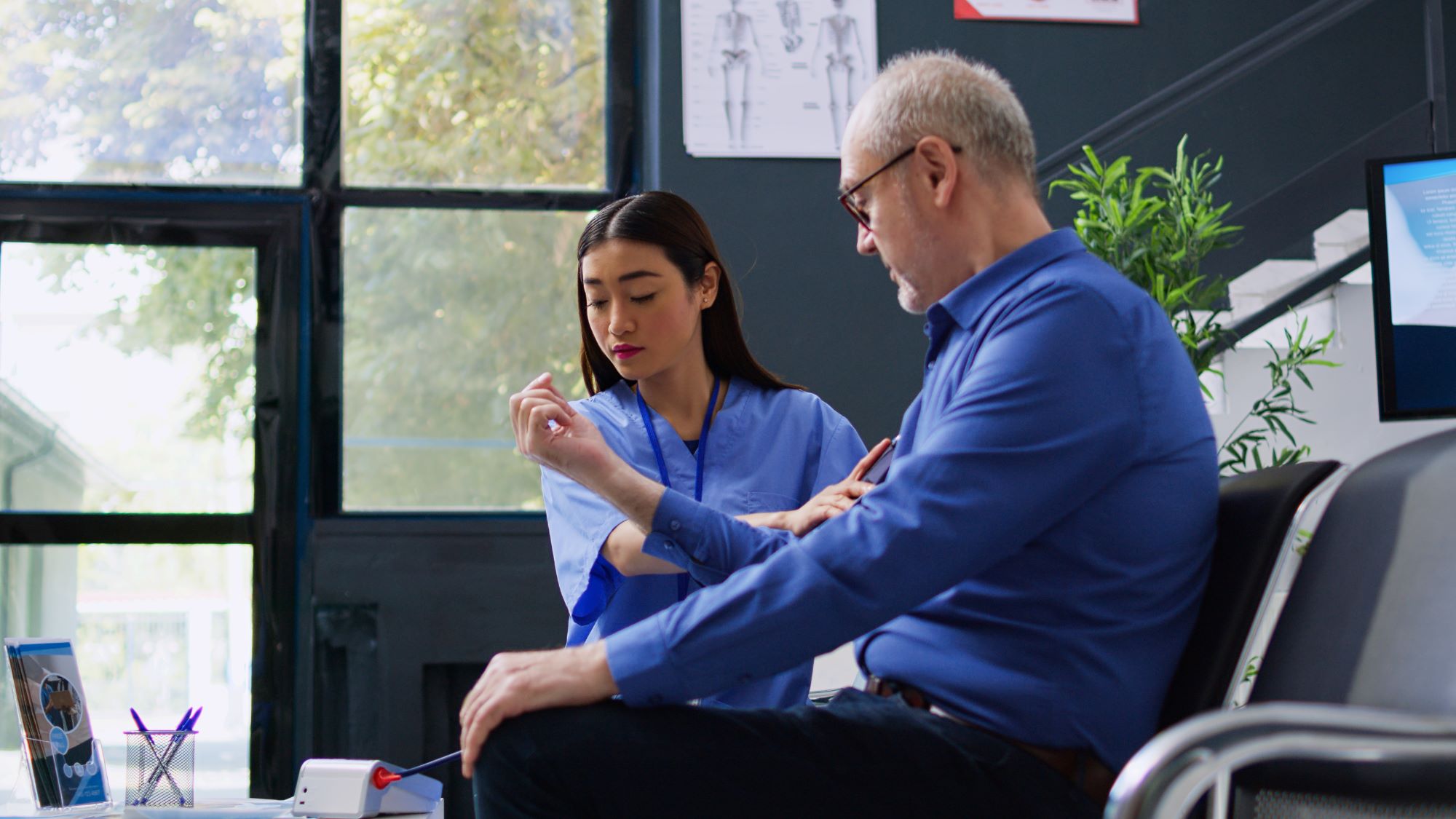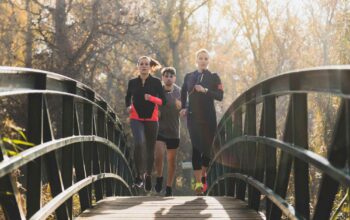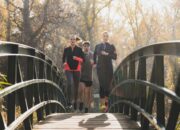middleportal.com – When it comes to strokes, every second counts. Stroke doctors, or neurologists, are trained to understand the delicate nature of brain health, and they know exactly what can make a difference between life and death in these critical moments. If you’ve ever wondered what actions could worsen the situation or delay recovery, you’re not alone. Strokes are an emergency, and understanding what not to do can be just as crucial as knowing what steps to take.
In this article, we’ll dive into some of the things stroke doctors say you should never, ever do, and why these actions can be so dangerous. From common myths to well-intentioned but harmful habits, it’s important to know what to avoid, especially if you or someone close to you might be at risk.
1. Ignoring the Symptoms of a Stroke
It’s easy to overlook or brush off symptoms of a stroke, especially if they seem mild or pass quickly. But this could be one of the most dangerous things you can do. Stroke doctors emphasize that recognizing the symptoms early and seeking immediate medical help is crucial. Common stroke symptoms include sudden weakness or numbness on one side of the body, difficulty speaking, confusion, blurred vision, and severe headache. If you experience any of these, don’t wait. Time lost is brain lost.
Stroke is a time-sensitive medical emergency. The quicker the treatment begins, the better the chances of recovery and minimizing brain damage. Don’t hesitate to call emergency services, even if the symptoms seem to subside. Getting evaluated quickly is key.
2. Trying to Diagnose a Stroke Yourself
While it’s normal to feel worried or uncertain when symptoms of a stroke appear, trying to self-diagnose can be deadly. Doctors advise against using online resources or asking friends and family for advice when you think you’re experiencing a stroke. You need immediate professional assessment.
Stroke doctors suggest the FAST method to remember the warning signs:
- F (Face drooping) – Does one side of the face droop or feel numb?
- A (Arm weakness) – Is one arm weak or numb?
- S (Speech difficulty) – Is speech slurred or hard to understand?
- T (Time to call for help) – If you notice any of these symptoms, call emergency services immediately.
Even if you’re unsure, it’s better to be safe than sorry. A few minutes can make all the difference.
3. Delaying Treatment to See if Symptoms Go Away
Sometimes, people hope that symptoms of a stroke will simply disappear on their own. However, stroke doctors warn that this is a dangerous mistake. Some strokes, especially “mini-strokes” (also known as transient ischemic attacks or TIAs), may seem to resolve in a short period, but they should never be ignored.
A TIA may be a warning sign of a larger stroke to come. By delaying treatment, you risk not only worsening your condition but also increasing the likelihood of permanent brain damage. Always err on the side of caution and seek medical attention immediately.
4. Taking Aspirin or Other Medication Without Doctor Approval
One of the most common pieces of advice you might hear in the aftermath of a stroke scare is to take aspirin. While aspirin can sometimes help reduce the risk of further clots, it’s not always the best solution, especially immediately after a stroke. In fact, stroke doctors emphasize that taking aspirin before being properly diagnosed can make things worse.
In some types of stroke, such as hemorrhagic strokes (where there’s bleeding in the brain), aspirin can worsen the bleeding and cause greater damage. That’s why it’s critical to avoid self-medicating with aspirin or any other medication without consulting a healthcare professional. Always wait for the doctor’s evaluation to determine the best course of action.
5. Eating or Drinking When a Stroke Is Suspected
If you suspect someone is having a stroke, one of the worst things you can do is offer food or water. Stroke doctors advise against it because swallowing can be affected during a stroke, and it can lead to choking or aspiration pneumonia (a severe lung infection).
When the brain is affected by a stroke, the ability to swallow properly is often compromised. Even if the person feels okay or tries to drink or eat, it’s better to wait until they’ve been assessed by a doctor to ensure they can safely swallow without risk.
6. Underestimating the Impact of a Stroke on Mental Health
A stroke can leave lasting physical and mental scars. Many people focus on the physical recovery process but overlook the emotional and psychological consequences. Stroke doctors caution that mental health is just as important, and ignoring it can slow recovery.
After a stroke, many people experience depression, anxiety, or changes in cognitive function. It’s essential not to dismiss these feelings as “just part of getting older” or “normal” after a stroke. Seeking therapy, counseling, or mental health support can significantly improve recovery outcomes and quality of life.
7. Not Following Through with Rehab and Physical Therapy
Recovery from a stroke is often a long and challenging journey, and it requires consistent effort and rehabilitation. Stroke doctors say one of the biggest mistakes people make after a stroke is not fully committing to rehab and physical therapy. It’s easy to get discouraged, especially if progress seems slow, but sticking with rehabilitation can make a huge difference in regaining independence.
Therapies like physical, speech, and occupational therapy help stroke survivors rebuild strength, coordination, and communication skills. These therapies improve motor skills and cognition, both of which can be compromised after a stroke.
8. Avoiding Lifestyle Changes Post-Stroke
After surviving a stroke, many individuals don’t make the necessary lifestyle changes to reduce the risk of having another stroke. Stroke doctors emphasize that adopting a healthier lifestyle is one of the most effective ways to prevent future strokes. Key changes include:
- Eating a balanced diet low in salt and saturated fat
- Engaging in regular physical activity
- Managing stress
- Quitting smoking
- Limiting alcohol consumption
These habits can help lower blood pressure, reduce cholesterol, and improve overall health, significantly lowering the chances of having a recurrent stroke.
9. Thinking You’re Alone in the Journey
Stroke recovery isn’t just about the individual; it’s about the support network around them. Stroke doctors stress that isolation can hinder recovery. Whether you are a stroke survivor or the family member of someone who has had a stroke, don’t go through this journey alone.
Support groups, both online and in person, can offer valuable advice, emotional support, and practical tips. It can also help survivors feel less isolated and more connected to others who are going through similar experiences.
10. Neglecting Regular Check-Ups After a Stroke
Once the immediate danger of a stroke has passed, many people think they’re out of the woods. However, stroke doctors advise against neglecting follow-up appointments and regular check-ups. Stroke survivors are at a higher risk of having another stroke, and regular doctor visits help monitor blood pressure, cholesterol levels, and other vital signs that could prevent future incidents.
Regular check-ups and monitoring allow doctors to catch any potential problems early and take preventive action before they escalate.
Stroke recovery is not just about surviving a stroke; it’s about making the right decisions during and after the event to ensure the best possible outcome. From recognizing the symptoms to making lifestyle changes, stroke doctors urge us to avoid actions that could hinder recovery. Time, awareness, and proper treatment are essential in overcoming the aftermath of a stroke, and knowing what not to do can help guide you or your loved one toward a healthier, more fulfilling life.
So, the next time you or someone you know faces a stroke scare, remember: don’t hesitate to seek help, avoid self-diagnosis, and always follow medical advice for the best recovery possible. Your health depends on it.









